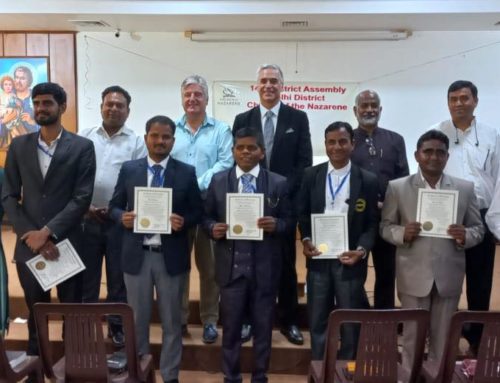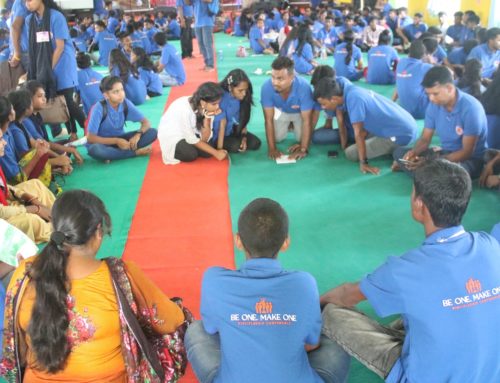Earlier this year, Betsy Scott, a missionary in Croatia, taught a ten-week Women in Ministry class to a group of women in the capital city of Zagreb, where she and her husband, Dave, are based.
Class attendance ranged between five and eight women representing several nationalities and denominations. It grew out of an ongoing young women’s Bible study that Betsy had hosted in their home for a year and a half, and was also inspired by several conversations Betsy had with young Christian women who expressed either confusion about the role of women in the Church, or an inability to articulate what they believed.
 Betsy had also learned that the Church of the Nazarene is the only denomination with a presence in Croatia which teaches that God calls and equips both men and women into ministry and both can hold positions of leadership within the church, without any limitations. Because the denomination has, since its founding, upheld women as pastors and leaders in the church around the world, Betsy was also excited about the opportunity to be able to teach interested women about the denomination’s stance and why it holds this position.
Betsy had also learned that the Church of the Nazarene is the only denomination with a presence in Croatia which teaches that God calls and equips both men and women into ministry and both can hold positions of leadership within the church, without any limitations. Because the denomination has, since its founding, upheld women as pastors and leaders in the church around the world, Betsy was also excited about the opportunity to be able to teach interested women about the denomination’s stance and why it holds this position.
So the women in ministry class was born.
“Overall, the response was very positive, and that was so encouraging to me!” Betsy wrote in an email. “They want to bring life to their churches when it comes to freeing women to use their gifts freely. It’s exciting! They want women, including themselves, to awaken.”
The class took an exegetical and hermeneutical approach, while studying the biblical equality perspective of women in ministry. It discussed Jesus’ ministry and how He related to women. It examined some of the examples of women in the early church, then looked closely at passages in Ephesians, 1 Timothy and 1 Corinthians. The class concluded with a case study and a conversation on bridging strategies – or how the class participants could help build bridges for women in ministry in their own churches, taking into account the cultural context of Croatia.
“I have sadly realized that I use the position of women in our church as an excuse for not trying very hard… I have been challenged to give my best no matter what others try to impose on me,” wrote one participant from another denomination. “I have decided to trust the Spirit leading the church, and put myself behind. It is a wonderful state of freedom, which enables me to better focus on the actual work before me in the Kingdom.”
“I would definitely like to explore it even further and will try to pray more about it as I believe that is how things really happen and last!” wrote another participant. “I want to have the right attitude towards the subject and to be able to help others in my life question their attitude and go back to the Word together.”
The Church of the Nazarene manual states:
"The Church of the Nazarene supports the right of women to use their God-given spiritual gifts within the church, affirms the historic right of women to be elected and appointed to places of leadership within the Church of the Nazarene, including the offices of both elder and deacon. The purpose of Christ’s redemptive work is to set God’s creation free from the curse of the Fall. Those who are "in Christ" are new creations (2 Corinthians 5:17). In this redemptive community, no human being is to be regarded as inferior on the basis of social status, race, or gender (Galatians 3:26-28)."
“I was THRILLED to be able to share more about who the Church of the Nazarene is and what she believes! It was such an honor to be able to show with pride what we believe, how long we have believed it, and why we believe it.,” Betsy said.
As Nazarene church planters, Dave and Betsy are praying about how to implement the bridging strategies that were discussed as they take the next steps of developing the burgeoning Church of the Nazarene in Croatia. One of the bridging strategies is for a church to develop and adopt a team leadership model within the church, rather than a head pastor model. In the case of the latter, in many churches, what has happened is the deification of the pastor role, in which most of the leadership responsibility falls to the pastor alone and lay leadership is not fully developed.
The class also renewed the Scotts’ commitment to be intentional in creating places for theologically trained and educated women to serve in the Croatian church, so that they don’t continue to seek ways outside of the church to use their gifts.



